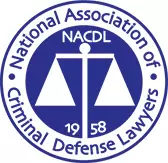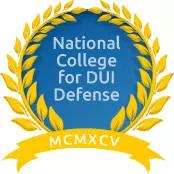The state of Texas hasn’t been kind to people charged with driving while intoxicated (DWI). Legislation has tried to combat rising drunk driving fatalities with more stringent DWI laws. Unfortunately, these laws haven't hindered the rising DWI death toll. The National Highway Safety and Traffic Administration (NHTSA) has reported an increase of 200 more alcohol-related fatalities on Texas roads from the years 2015 to 2017.
DWI-related deaths may be on the rise, but Texas laws are still unnecessarily harsh. A DWI conviction can result in up to 180 days in jail. Texas also imposes added conditions if you’re convicted of a DWI. Many people are required to attend DWI class, community service, or have their license suspended for a period of time. However, one of the most controversial consequences is the inability to obtain deferred adjudication.
As of now, you’re unable to have your guilt adjudicated if you’ve been charged with a DWI offense. This means you must have a conviction on your record if you plead guilty or no contest. The judge may sentence you to community supervision also known as probation, but you’ll be unable to dismiss your charges completely. Licensing agencies and employers could pull up your conviction with a simple background check. Texas State Senator José Menéndez is attempting to change this with his Senate Bill 106 (SB106) which would alter deferred adjudication laws.
What Does the Bill Say?
SB106 attempts to amend Article 42A.102(B) of the Texas Code of Criminal Procedure, otherwise known as community supervision laws. Currently, the law states the court cannot grant deferred adjudication to anyone charged with a crime under section 49.04-49.08 of the Texas Penal Code. These crimes include:
- Driving while intoxicated;
- Flying while intoxicated;
- Boating while intoxicated;
- Assembling an amusement park ride while intoxicated;
- Intoxication assault; and
- Intoxication manslaughter
Senate Bill 106 would modify the law to only bar deferred adjudication for more serious DWI crimes. The bill states the court will only bar deferred adjudication if you’re charged with:
- Driving while intoxicated with a child passenger;
- Flying while intoxicated;
- Assembling an amusement park ride while intoxicated;
- Intoxication assault; or
- Intoxication manslaughter
This means if you are arrested for a garden variety DWI you would still be eligible for deferred adjudication under SB106. However, the bill states you can be barred from deferred adjudication if you’re charged with DWI and one of the following factors is present in the crime.
- You have a commercial driver’s license (CDL) or learner’s permit;
- Your blood-alcohol concentration was .016 or higher; or
- You’re charged with an enhanced DWI
If you’re eligible for deferred adjudication, you’ll be placed on a specialized community supervision. The conditions will be similar to probation such as attending drug and alcohol treatment, but you won’t have a conviction on your record. Instead your charges will be dismissed completely once you’ve finished the conditions of your deferred adjudication.
Required Ignition Interlock Devices in SB106
Another amendment proposed by SB106 is the required installation of an ignition interlock device (IID). The bill suggests the mandatory installation of an IID for anyone who has been granted community supervision or deferred adjudication. Even if you haven’t been charged with an enhanced DWI.
An IID is a breathalyzer device attached to your motor vehicle. Once installed, you must submit a breath sample to start the car. The instrument is designed to lock the engine if you have a blood-alcohol concentration at or above .08. The Senate Bill states if you’ve been granted deferred adjudication for a DWI offense, then you’ll be required to pay for the complete installation of an IID.
It may be another expense in an already costly process, but the IID is temporary. Normally, a judge will require you to have an IID installed for six months up to one year. In addition, if you’re financially struggling the court can set up a payment plan for the installation of your IID.
The Issue of Non-Disclosure and DWI
Menéndez’s bill could definitely ease the already stressful process of handling DWI charges. A deferred adjudication looks much better on a public record than a conviction. Conditions associated with deferred adjudication also tend to be less rigid than probation. Passing SB106 will help DWI offenders still be able to obtain suitable employment despite their criminal history.
However, SB106 still doesn’t allow DWI offenders to petition for non-disclosure. Which means you are still unable to seal your record if you were charged with DWI. Furthermore, employers will be able to access your public record which could affect your professional goals. They may not see a final conviction, but they can pull up your charges.
If Texas allowed DWI offenders to seal their record, then employers and licensing agencies wouldn’t see your charges at all. The most they may see is an arrest on your record. Obviously, this would be the most beneficial choice. Some employers and licensing agencies are incredibly wary of anyone with any type of record. Even if there’s no evidence of a final conviction.
It’s a question many criminal defense attorneys have for Texas legislation. When will DWI offenders be able to file for non-disclosure? It seems strict legislation isn’t enough to lessen drunk driving fatalities. Additionally, the majority of DWI cases are nonviolent crimes. Why not allow at the least first-time DWI offenders to seal their record?
While SB106 may not answer all these questions immediately it’s still a great step forward. Hopefully, Texas will pass the new bill and similar ones to lessen it’s already restrictive DWI laws. Maybe if legislation focuses more on rehabilitating DWI offenders with programs such as deferred adjudication drunk driving-related fatalities will decrease.
This blog was last updated on March 12th, 2019.









